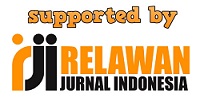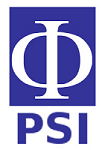Development of Quizizz-Based Interactive Questions to Measure Scientific Reasoning Skills
DOI:
https://doi.org/10.25273/jpfk.v7i1.9474Keywords:
Interactive questions, Quizizz, Scientific reasoning skills, .Abstract
Downloads
References
Al Faizah, W., & Aminah, N. (2019). Analysis of Student Concepts Understanding in Solving Scientific Literacy on the Topic of Momentum and Impulse. Paper presented at the Journal of Physics: Conference Series.
Anas, S. (2008). Pengantar statistik pendidikan. Jakarta: Raja Grafindo Persada.
Bryce, T., & MacMillan, K. (2009). Momentum and kinetic energy: Confusable concepts in secondary school physics. Journal of Research in Science Teaching: The Official Journal of the National Association for Research in Science Teaching, 46(7), 739-761.
Bujuri, D. A. (2018). Analisis perkembangan kognitif anak usia dasar dan implikasinya dalam kegiatan belajar mengajar. LITERASI (Jurnal Ilmu Pendidikan), 9(1), 37-50.
Chaiyo, Y., & Nokham, R. (2017). The effect of Kahoot, Quizizz and Google Forms on the student's perception in the classrooms response system. Paper presented at the 2017 International Conference on Digital Arts, Media and Technology (ICDAMT).
Darmawan, I. G. N., Vosniadou, S., Lawson, M. J., Van Deur, P., & Wyra, M. (2020). The development of an instrument to test preâ€service teachers’ beliefs consistent and inconsistent with selfâ€regulation theory. British Journal of Educational Psychology, 90(4), 1039-1061.
Darmawan, R. (2015). Skala Pengukuran Variabel-Variabel Penelitian. Bandung: Alfabeta. Hal, 24.
Davies, R. S. (2011). Understanding technology literacy: A framework for evaluating educational technology integration. TechTrends, 55(5), 45-52.
Ding, L., Wei, X., & Liu, X. (2016). Variations in university students’ scientific reasoning skills across majors, years, and types of institutions. Research in Science Education, 46(5), 613-632.
Effendy, S., Hartono, Y., & Ian, M. (2018). The Ability of Scientific Reasoning and Mastery of Physics Concept of State Senior High School Students in Palembang City. vol, 247, 504-509.
Erlina, N., & Susantini, E. (2018). Common False of Student’s Scientific Reasoning in Physics Problems. Paper presented at the Journal of Physics: Conference Series.
Fatimah, L. U., & Alfath, K. (2019). Analisis Kesukaran Soal, Daya Pembeda dan Fungsi Distraktor. Al-Manar, 8(2), 37-64.
Fitriyani, S., Hertanti, E., & Nurlaela, A. (2017). Pengaruh Metode Drill Berbantuan Soal Animasi terhadap Kemampuan Berpikir Reflektif Siswa Pada Konsep Dinamika Partikel. Paper presented at the PROSIDING SEMINAR NASIONAL FISIKA (E-JOURNAL).
Fulmer, G. W., Chu, H.-E., Treagust, D. F., & Neumann, K. (2015). Is it harder to know or to reason? Analyzing two-tier science assessment items using the Rasch measurement model. Asia-Pacific Science Education, 1(1), 1. doi: 10.1186/s41029-015-0005-x
Göksün, D. O., & Gürsoy, G. (2019). Comparing success and engagement in gamified learning experiences via Kahoot and Quizizz. Computers & Education, 135, 15-29.
Hamzah, A. (2014). Evaluasi Pembelajaran Matematika: Rajawali Pers.
Han, J. (2013). Scientific reasoning: Research, development, and assessment. The Ohio State University.
Jelicic, K., Planinic, M., & Planinsic, G. (2017). Analyzing high school students’ reasoning about electromagnetic induction. Physical Review Physics Education Research, 13(1), 010112.
Jensen, J. L., Neeley, S., Hatch, J. B., & Piorczynski, T. (2017). Learning scientific reasoning skills may be key to retention in science, technology, engineering, and mathematics. Journal of College Student Retention: Research, Theory & Practice, 19(2), 126-144.
Kant, J. M., Scheiter, K., & Oschatz, K. (2017). How to sequence video modeling examples and inquiry tasks to foster scientific reasoning. Learning and Instruction, 52, 46-58.
Khoshsima, H., & Hashemi Toroujeni, S. (2017). Comparability of Computer-Based Testing and Paper-Based Testing: Testing mode effect, testing mode order, computer attitudes and testing mode preference. International Journal of Computer (IJC), 24(1), 80-99.
Lawson, A. E. (1982). The nature of advanced reasoning and science instruction. Journal of Research in Science teaching, 19(9), 743-760.
Lawson, A. E. (2005). What is the role of induction and deduction in reasoning and scientific inquiry? Journal of Research in Science Teaching, 42(6), 716-740.
Looi, C.-K., Sun, D., & Xie, W. (2014). Exploring students’ progression in an inquiry science curriculum enabled by mobile learning. IEEE Transactions on Learning Technologies, 8(1), 43-54.
Malik, A., & Agustina, R. D. (2020). Review Pengaruh Teknologi Gamification Terhadap Psikologis Siswa. JICTE (Journal of Information and Computer Technology Education), 4(1).
Marušić, M., & Sliško, J. (2012). Influence of three different methods of teaching physics on the gain in students' development of reasoning. International Journal of Science Education, 34(2), 301-326.
Molnár, G., & Csapó, B. (2019). Making the psychological dimension of learning visible: using technology-based assessment to monitor students’ cognitive development. Front. Psychol. 10, 1368 (2019).
Moore, J. C., & Rubbo, L. J. (2012). Scientific reasoning abilities of nonscience majors in physics-based courses. Physical Review Special Topics-Physics Education Research, 8(1), 010106.
Moraes, J. d., Castellar, S. M. V., Castellar, S., & Castellar, S. (2010). Scientific literacy, problem based learning and citizenship: a suggestion for geography studies teaching. Problems of Education in the 21st Century, 19, 119-127.
Mukhlis, M., & Tohir, M. (2019). Instrumen Pengukur Creativity And Innovation Skills Siswa Sekolah Menengah di Era Revolusi Industri 4.0. Indonesian Journal of Mathematics and Natural Science Education, 1(1), 65-73.
Nikou, S. A., & Economides, A. A. (2016). The impact of paper-based, computer-based and mobile-based self-assessment on students' science motivation and achievement. Computers in Human Behavior, 55, 1241-1248. doi: 10.1016/j.chb.2015.09.025
Nurjanah, N. (2017). Analisis Butir Soal Pilihan Ganda dari Aspek Kebahasaan. Faktor: Jurnal Ilmiah Kependidikan, 2(1), 69-78.
Opitz, A., Heene, M., & Fischer, F. (2017). Measuring scientific reasoning – a review of test instruments. Educational Research and Evaluation, 23(3-4), 78-101. doi: 10.1080/13803611.2017.1338586
Piaget, J. (2003). The psychology of intelligence: Routledge.
Prasetiyo, N. A., & Perwiraningtyas, P. (2017). The development of environment based textbook in biology course at Tribhuwana Tunggadewi University. Indonesian Journal of Biology Education, 3(1), 19-27.
Purba, L. S. L. (2019). Peningkatan konsentrasi belajar mahasiswa melalui pemanfaatan evaluasi pembelajaran quizizz pada mata kuliah kimia fisika I. Jurnal Dinamika Pendidikan, 12(1), 29-39.
Qian, M., & Clark, K. R. (2016). Game-based Learning and 21st century skills: A review of recent research. Computers in human behavior, 63, 50-58.
Setiyoningtyas, R., & Kasmui. (2020). Pengembangan quizizz-assisted test berbasis literasi sains pada materi larutan elektrolit nonelektrolit. Chemistry in Education, 2.
Sholekhah, F., Maharta, N., & Suana, W. (2018). Development of Higher Thinking Instrument of Newton ‘S Laws of Motion. Journal of Physics and Science Learning, 2(1), 17-26.
Solikah, H. (2020). Pengaruh Penggunaan Media Pembelajaran Interaktif Quizizz terhadap Motivasi dan Hasil Belajar Siswa pada Materi Teks Persuasif Kelas VIII di SMPN 5 Sidoarjo Tahun Pelajaran 2019/2020. BAPALA, 7(3).
Subiki, S., & Supriadi, B. (2018). Identifikasi Kemampuan Penalaran Ilmiah (Scientific Reasoning) Siswa SMA di Kabupaten Jember Pada Pokok Bahasan Dinamika. FKIP e-PROCEEDING, 3(1), 121-126.
Xiao, Y., Han, J., Koenig, K., Xiong, J., & Bao, L. (2018). Multilevel Rasch modeling of two-tier multiple choice test: A case study using Lawson’s classroom test of scientific reasoning. Physical Review Physics Education Research, 14(2), 020104.
Xu, B., Tu, S., Qiao, S., Qu, X., Chen, Y., Yang, J., . . . Tian, F. (2017). Diagnostic accuracy of angiography-based quantitative flow ratio measurements for online assessment of coronary stenosis. Journal of the American College of Cardiology, 70(25), 3077-3087.
Yuksel, I., & Ates, S. (2018). Examination of the relationship between preservice science teachers’ scientific reasoning and problem solving skills on basic mechanics. Paper presented at the AIP Conference Proceedings.
Yusup, F. (2018). Uji validitas dan reliabilitas instrumen penelitian kuantitatif. Tarbiyah: Jurnal Ilmiah Kependidikan, 7(1).
Zhou, S.-N., Liu, Q.-Y., Koenig, K., Li, Q., & Bao, L. (2021). Analysis Of Two-Tier Question Scoring Methods: A Case Study On The Lawson’s Classroom Test Of Scientific Reasoning. Journal of Baltic Science Education, 20(1), 146.
Zhou, S., Han, J., Koenig, K., Raplinger, A., Pi, Y., Li, D., . . . Bao, L. (2016). Assessment of scientific reasoning: The effects of task context, data, and design on student reasoning in control of variables. Thinking skills and creativity, 19, 175-187.
Downloads
Published
Issue
Section
License

Jurnal Pendidikan Fisika dan Keilmuan (JPFK) by http://e-journal.unipma.ac.id/index.php/JPFK/index is licensed under a Creative Commons Attribution-ShareAlike 4.0 International License.



















